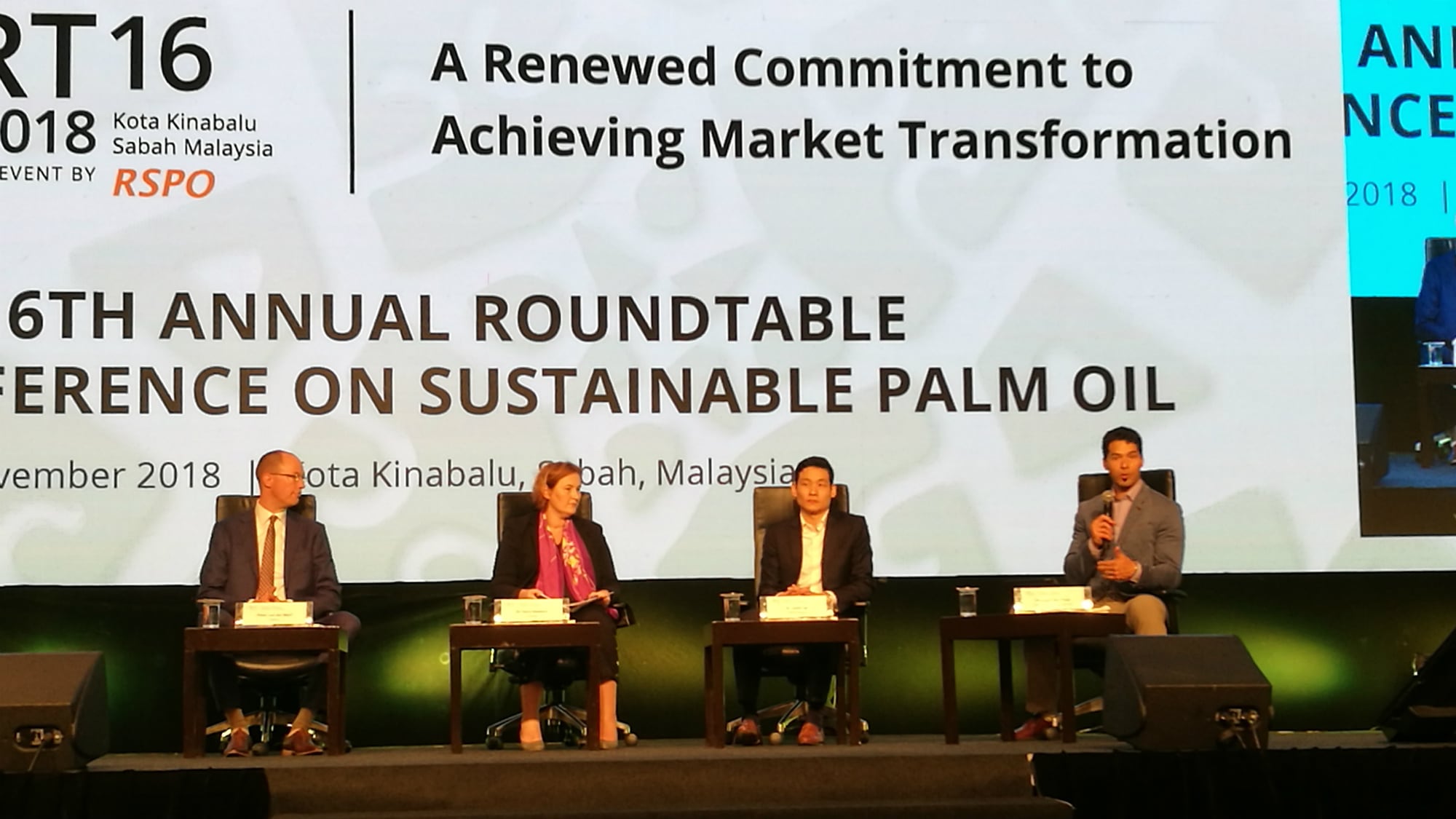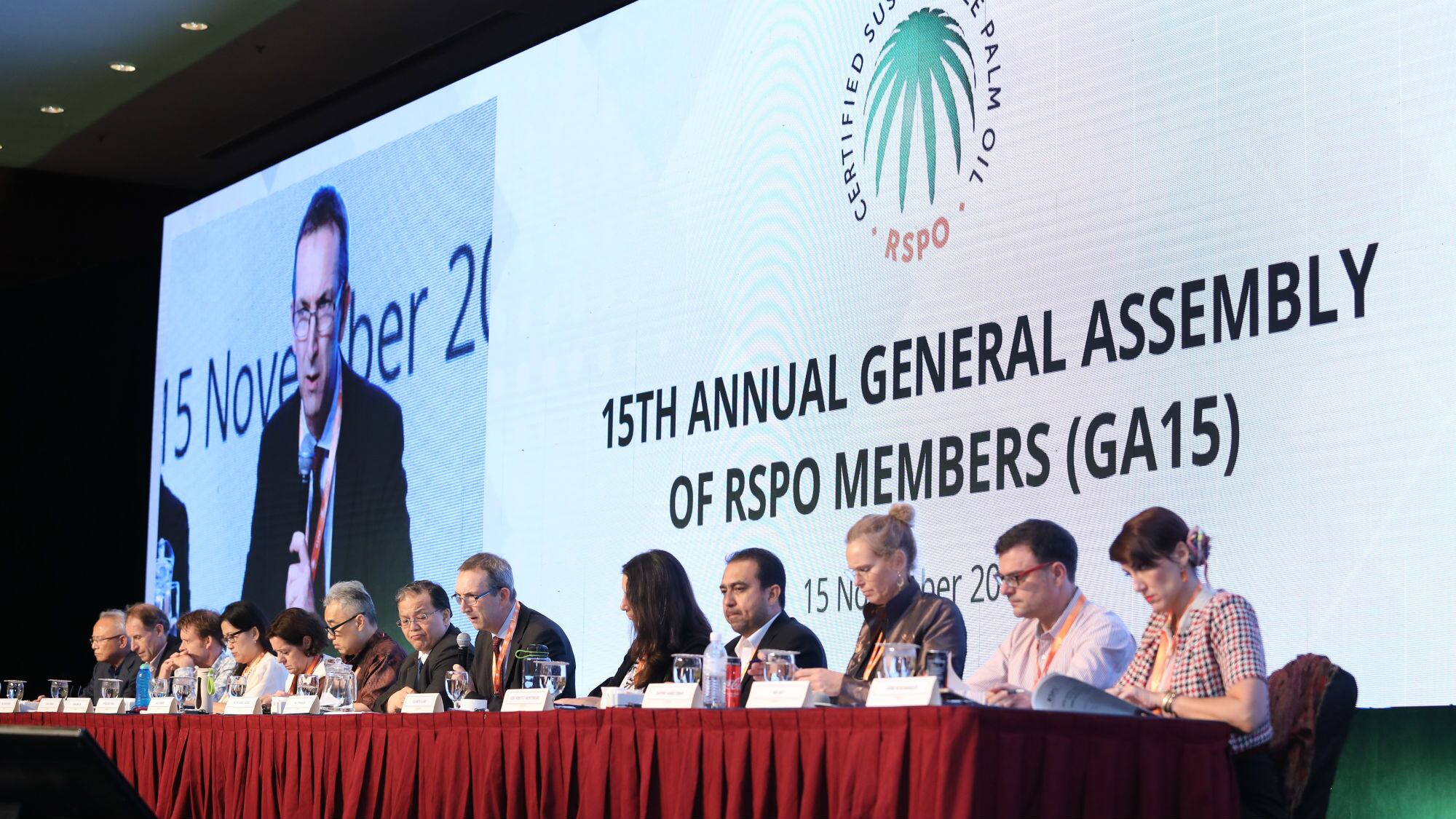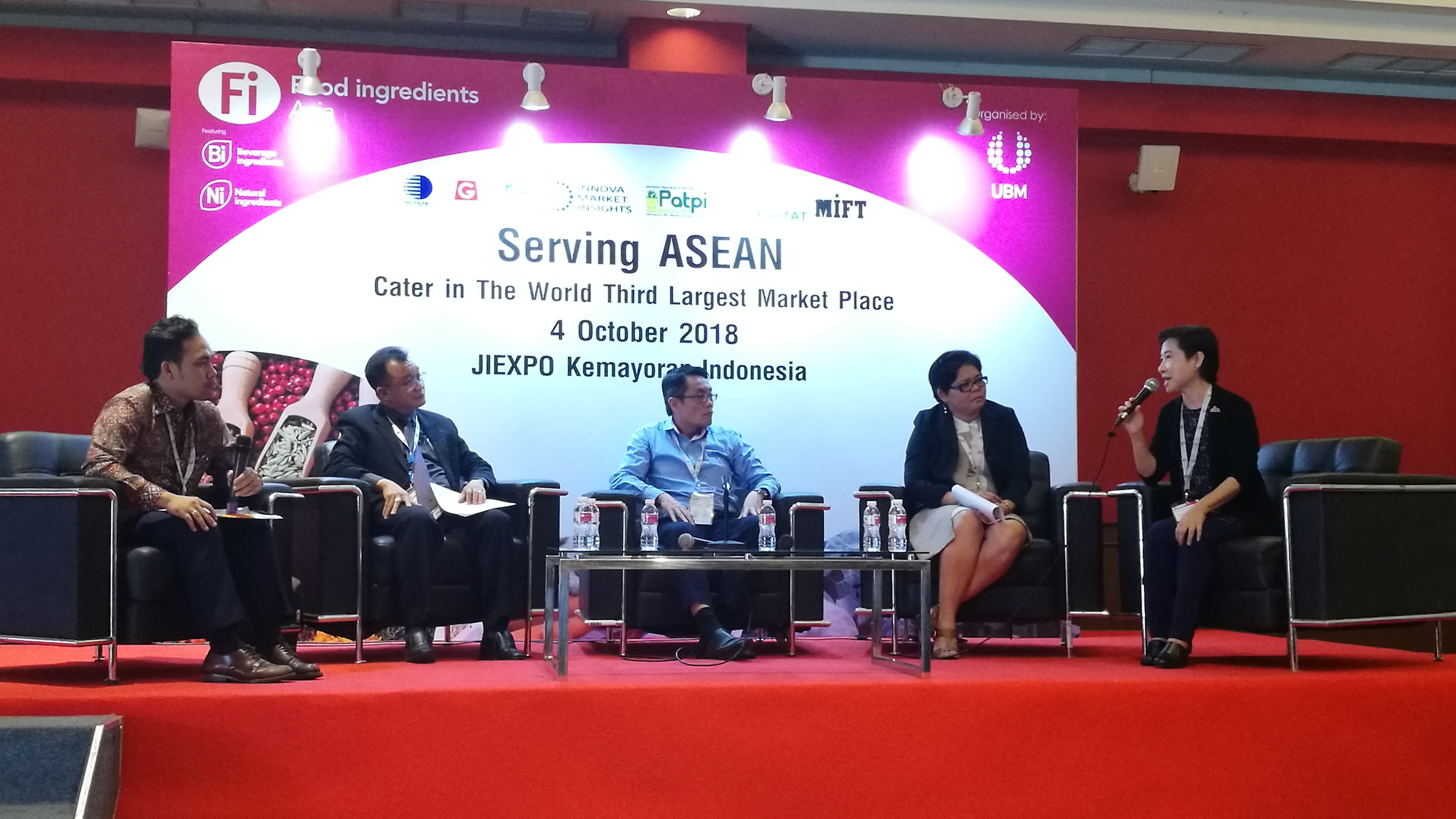The four areas are: Aceh-North Sumatera, Central Kalimantan and Riau in Indonesia, as well as Sabah in Malaysia.
If successful, this would mean that all palm oil sourced from within the selected areas/districts would be certified sustainable by the Roundtable on Sustainable Palm Oil (RSPO) and local sustainability standards.
Unilever is the parent company of various big food and beverage brands, including Knorr (seasonings, stocks, etc.), Lady’s Choice (spreads) Lipton (tea and beverages), and Planta (spreads) amongst others.
Speaking at the RSPO Annual Roundtable Conference on Sustainable Palm Oil (RT16) in Sabah, Dr Petra Meekers, Unilever Director Sustainable Sourcing, said: “These four areas were selected as these are areas which are important for Unilever’s supply chain.”
“Aceh-North Sumatera contains the province where the Unilever Oleochemicals Indonesia refinery is located, Riau has the highest concentration of production unit mills, Sabah [authorities are] highly cooperative, and Central Kalimantan is where our jurisdictional approach pilot is located.”
Unilever conducted the pilot in Central Kalimantan in partnership with the Earth Innovation Institute and Institut Penelitian Inovasi Bumi (INOBU).
“Unilever announced support for jurisdictional approaches towards [sustainable palm oil] certification at the UNFCCC COP 21 in Paris [back in 2015], and this project aims at piloting this concept,” said Meekers.
“In 2017, INOBU and Unilever have RSPO and ISPO (Indonesian Sustainable Palm Oil) certified 190 smallholder farmers. [We] aim to certify at least 400 more smallholder farmers, and the target is 5,000 smallholder farmers for a three-year project.
“[We] see this as backend integration of the smallholder farmers within the supply chain.”
Bringing the jurisdictional approach up a level
Following Central Kalimantan, Unilever is now setting its sights on two districts in Sabah.
“[After the pilot], we then thought about how to bring things up another level, to district level, [and decided on Tawau and Sugut districts in Sabah],” said Meekers.
“We decided to work with WWF on integrated land-use plans at landscape level, and also look at smallholder farmers not yet integrated into the supply chain, and how to bring them on board.”
In dealing with these two districts, one area of particular concern is environmental and ecosystem protection and conservation. This is in part due to increasing reports of human-elephant conflicts arising in the Malaysian state recently.
“In taking protection and conservation into focus, another objective [in Sabah] is to ensure that key ecological corridors (native vegetation that links two large, similar wildlife habitats) and riparian vegetation (interfaces between land and rivers/streams) are managed and restored [in these two landscapes],” added Meekers.
‘Stop focusing on risk-aversion’
Responding to fellow speakers Peter van der Werf (Robesco) and Keith Lee (WWF) who spoke about financing, investments and risk assessments at the same session, Meekers invited the finance sector to be ‘less risk-adverse’.
“We need to look at innovation, value-sharing and supply chain alignment first. These things are crucial as a first step towards a jurisdictional approach,” said Meekers.
“[Here], we invite the finance sector to be less risk-adverse [in their assessment approach]. We are not getting innovation due to this risk-aversion, which in turn adds to the difficulties faced in obtaining land titles, etc., [bringing things back full-circle].”
Lee and van der Werf respectively responded that there were indeed issues within current financial models and financial system gaps that need to be addressed in order to find hard solutions.





